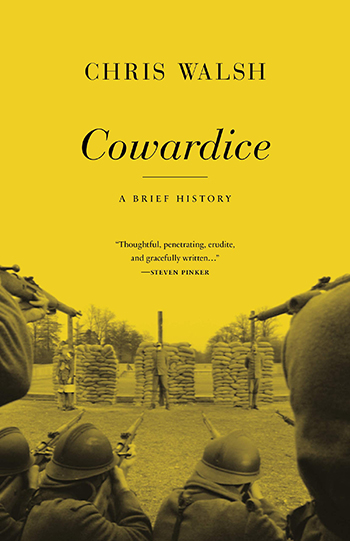There have been many books written about courage. About cowardice, however, there has only been one. The author of this lone book onb cowardice joins me today to talk about why cowardice, though much ignored, is at least equally important to understand as courage, and how the fear of the former may actually serve as a stronger motivator towards doing daring de
There have been many books written about courage. About cowardice, however, there has only been one. The author of this lone book onb cowardice joins me today to talk about why cowardice, though much ignored, is at least equally important to understand as courage, and how the fear of the former may actually serve as a stronger motivator towards doing daring deeds.
His name is Chris Walsh, and his book is Cowardice: A Brief History. Today on the show, Chris explains how a coward can be defined as "someone who, because of excessive fear, fails to do what he is supposed to do," and yet how the assumptions behind this definition can be hard to pin down. We discuss why cowardice has been so condemned through time, so much so that in the military it was long considered a crime worthy of execution. We also discuss why the fear of being a coward is so tied into manliness, and why that label constitutes the worst insult you can level at a man. Chris delves into the way external checks on cowardice, the depersonalization and technologization of war, and the rise of the therapeutic lens on life have diminished the moral heft of cowardice. He then argues that despite this fact, and the way that cultural contempt for cowardice and a personal fear of it can lead to negative effects, it remains an important prod towards doing one's duty and a foundation of moral judgment. We end our conversation with how we can use the fear of cowardice as a positive motivator in our lives.
